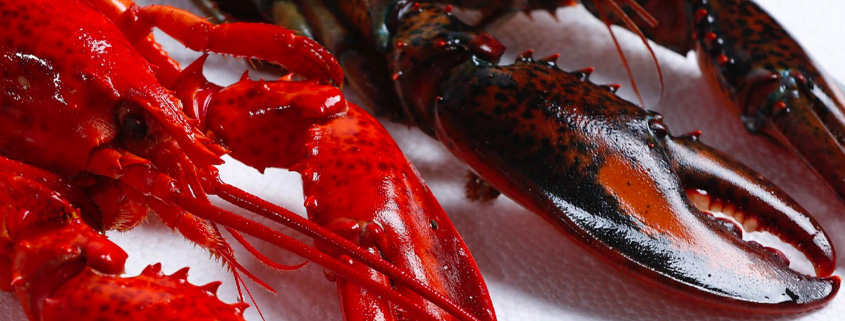Kleiman: Industry dealmakers must ‘dust off, come back stronger’ to compete with PE
More and more private equity (PE) firms are looking to get into the seafood sector, said two mergers and acquisitions (M&A) advisors who have just done deals.
Ignacio Kleiman, whose Antarctica Advisors just closed the sale of US scallop processor Northern Wind to ACON Investments, told Undercurrent News more PE firms were involved in the process. Acon, which has over $6 billion in assets under management, has combined Northern Wind with two Canadian lobster processors, Suncoast Seafood and Raymond O’Neill & Son Fisheries (ROSF) in a new platform, Atlantic Sustainable Catch (ASC).
“Private equity is making a strong entry into the industry. Others didn’t get there in this [Northern Wind] process, but they like the industry and have the capital. They will likely create more platforms that will help consolidate this industry,” Kleiman said.
“I think that private equity will be much more prevalent than was before. There is going to be new names coming into the sector.” Between “six to eight” new PE firms could emerge as consolidators, Kleiman told Undercurrent.
“The strategic guys will have to dust off a little bit and come back and become stronger players. Otherwise, they’re going to start losing ground and letting private equity pick up the good companies,” Kleiman said.
Acon, for one, has made it clear it’s looking at more deals. Kleiman said scallop vessels would be a possible move, as previously reported by Undercurrent.
Antarctica is well-positioned to have an overview of global seafood M&A trends. The latest Undercurrent Seafood Dealmakers Directory update for the first half of2021 ranks Antarctica as the joint second most prolific M&A advisory firm together with Norway’s Pareto Securities and behind only DNB Markets looking at deals inked since 2015. That’s before the Northern Wind deal and the sale of Mitsui Foods to Gellert Global Group, news of which broke on Tuesday.
Avi Suriel, who advised Suncoast and ROSF on the sale to Acon, agreed there is a lot of PE interest in the space.
However, he said PE firms are well-positioned to consolidate groups of smaller players rather than challenge for more prominent companies.
“I think there are several firms that are now definitely seeing the profits that could be made. Clean protein is what consumers want. There is a finite supply of wild seafood outside of aquaculture,” said Suriel, a managing director with GTSecurities, a California, US-based M&A advisory firm. “So, it presents an attractive opening for private equity firms to combine a few companies in this fragmented industry and make more efficient operations by enhancing automation and robotics.”
Middle market private equity firms can put together several players to a company of a larger size and then sell it to the strategics, said Suriel. GT currently has a pipeline of several deals in seafood at “various stages”, he said.
“Some negotiations are preliminary, some more advanced. We have a couple in theUS and two in Canada. Some of the deals are shellfish and others groundfish. And they’re all across the spectrum. They’re not just processing; a couple of deals have to do with the leading distributors and marketing companies,” Suriel toldUndercurrent.
The entry of PE to unconsolidated sectors like seafood can help solve issues with inefficiency, Kleiman said. “Seafood suffers from a high level of inefficiency because you have many small-to-medium size players that don’t have the capital.”
Often, the companies have aging owners who do not have “enough runway left to invest the capital in becoming more efficient players and getting the economies of scale”. This then makes “seafood itself more expensive”, he said.
The “continued process of merging companies will make them more efficient, the industry more efficient”. Kleiman said this will benefit the consumer as companies can offer better-priced and more innovative products. “When you are too small, doing any R&D or investing in modern machinery is difficult. When you are larger, you can absorb that initial cost much better.”
This is the model used by Champlain Financial Corporation, which has snapped up a group of lobster and snow crab processing firms and is currently eyeing an exit. Suriel was involved in the sale of Cheticamp Fisheries International to Champlainin 2017 while with his previous employer, Ascendiant Capital Markets. SinceChamplain has inked five more deals, the most recent being Lobsters ‘R’ Us Seafoodearlier this year.
When Undercurrent reported Champlain had tasked Houlihan Lokey and theNational Bank of Canada to advise on a sale, it emerged the business is now CAD500 million in sales with CAD 55m in earnings before interest, taxes, depreciation and amortization (EBITDA).
“That’s exactly what Champlain is doing. They have put together something that now has tens of millions of EBITDA. At that point, strategics would be interested, and the multiple of EBITDA they receive, which would drive their valuation, would be higher than for a smaller entity,” Suriel told Undercurrent.
The synergies prominent industry players would have should mean they fare better in more significant deals, he said.
“I don’t feel that PE firms are necessarily bidding higher than strategics. It’s more likely that most of the strategics in the sector are companies that are multi-billion dollars in size,” he said.
“So, for them, buying a processor with sales of $25m or $30m, or even $50m, doesn’t move the needle. They already have $100m-$150m in EBITDA, so the impact from another $4-5m more would be negligible,” he told Undercurrent.
“That’s why much of the interest in the [shellfish sector in North America] sector so far has been primarily from financial buyers. There’s no question that a strategic[buyer] would be able to bid higher prices than financials. It’s almost always the case, due to potential immediate synergies and familiarity with the market, the lack of need to retain current management necessarily, and the ability for cost-cutting,” he said.
“However, for the big seafood players, they need a certain mass to be able to justify making a step and purchasing something. When the size is sufficient, then they would be able to outbid financial buyers because of the synergies and the plug-and-play nature of the situation,” said Suriel.
Even if a PE firm with no prior seafood investments brings an operating partner as an expert to help manage or oversee the portfolio, he said it’s “almost always”totally reliant on the management team already in place. “Therefore, it has to tread carefully to mitigate the risk of talent/management flight, which leads to somewhat lower multiple and valuation than a strategic would pay.”
More conservative on leverage
Although PE firms have a reputation for piling debt on businesses, Kleiman said there have been lessons learned.
“I think they came to accept that you couldn’t put the typical high level of leverage onto these seafood companies. Are they using leverage? Yes. But they are being much more conservative. “I don’t think that these guys are levering up to the point that would make you worried; they are putting in more equity,” he said. “Also, the cost of money is lower, which helps.”
The pandemic stalled many deals in 2020 and created pent-up solid demand in2021, Kleiman said.
“I think it’s going to spill into 2022 because the COVID cloud was not dissipating until pretty much mid-2021. So, many transactions and a lot of situations — talking about all industries — picked up over the summer. Only a few of those transactions are going to manage to close before the fiscal year ends.”
As a result, the first half of 2022 is likely to be busy for seafood M&A.
“Private equity will be much more prevalent than it was before” in these deals, Kleiman said.
PE firms have “started understanding the industry and how to play”, he said.”They’re getting more and more comfortable with a little bit of volatility and the multiples the industry is commanding. “They have the capital and the broader perspective, which the industry needs.”
There’s also more access to good liquidity and a better understanding of the seafood sector on the commercial banking side, “with more players supporting transactions”, he said.
UCN data shows rise in PE deals
Data from Undercurrent‘s Seafood Dealmakers Directory supports Kleiman andSuriel’s observation that PE plays an increasingly important role in M&A in the sector.
In the first half of 2021, deals from PE/investment firms accounted for 34% of the total. The level was 37% for all of 2020. The PE/investor deals percentage was 26%in 2019, 23% in 2018 and 18% in 2017.
Some of the most prominent deals of the first half were made by PAI Partners, which has been adding to Spanish processor Angulas Aguinaga, acquired last year; Milarex owner Summa Capital, which acquired US importer ULTCO in March; and Norwegian newcomer Blue front Equity, which made its first seafood acquisition inMay.
The North American shellfish sector where Acon is now involved with ASC is a focus for PE M&A at the moment.
Earlier this year, Canada’s Champlain added Lobsters’ R’ Us to its C&E SeafoodCompany platform. The Montreal, Quebec-based PE has previously inked deals for Cheticamp Fisheries International, Riverside Lobster International, Boston LobsterCo., Petit de Grat Packers, Downeast Cape Bald Packers, Captain Dan’s Seafoodunder the C&E holding.
Ontario Teachers’ Pension Plan (OTPP) and Solamere Capital are investment/PEfirms involved in big seafood deals in the North American shellfish sector in the past few years.
Solamere, which Taggart “Tagg” Romney owns, has invested in Canadian shellfish companies owned by the Daley family, which trades as Daley Seafoods.
OTPP pipped seafood giant Cooke to Atlantic Aqua Farms — Canada’s largest mussel farmer — in 2017. OTPP, which has CAD 220bn in assets under management, was bidding for Clearwater Seafoods, Canada’s largest shellfish harvesting company. OTPP and Cooke, reportedly, were beaten to Clearwater by acquisitive Starbucks sandwich supplier Premium Brands Holdings and a group of first Nations groups. Premium is close to announcing a deal for WestmorlandFisheries, one of the biggest lobster processors in Canada, as Undercurrent reported last week.
California, US-based Platinum Equity, which snapped up Spain’s Grupo IbericaCongelados (Iberconsa) in 2019, is another new entry to seafood from the PE space. Platinum was also reportedly running for Clearwater, sources said at the time.
Spain’s Portobello Capital sold a majority in Iberconsa to Platinum but continues to have a minority stake. Portobello also still has a minority in Angulas, having divested the majority to PAI last year.
CapVest Partners, the UK-based private equity that sold Young’s Seafood to Canada’s Sofina Foods earlier this year, is also a PE name linked to more deals in the sector in both Europe and the US.
According to Undercurrent sources, both CapVest and PAI were in the running for Foppen Groep, a salmon smoker based in the Netherlands. However, Hilton FoodGroup, a UK-based meat processing company that got into seafood with a deal for Tesco and Waitrose supplier Seachill UK in 2017, is said to be in exclusive talks to buy Foppen.
Hilton has a strong rationale for buying Foppen as both as big suppliers to AlbertHeijn in the Netherlands, sources said at the time. Also, Hilton is not in the US market, which accounts for a big chunk of Foppen’s sales. Neither company has commented on the deal, which is yet to close, however.



